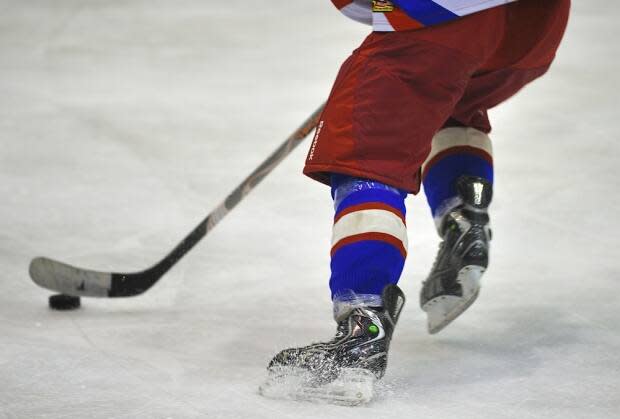Sport management expert questions handling of alleged minor hockey bullying case

The handling of a case involving the alleged bullying of a minor hockey player in Wilkie, Sask., raises questions, says a sport management expert.
Randy and Jaleesa Elson reported the alleged bullying and beating of their eight-year-old son in and around the town's rink last November to Wilkie Minor Hockey (WMH) and the Saskatchewan Hockey Association (SHA).
Less than a week later, they were informed by the local minor hockey association that their son and his two younger brothers, ages four and six, had been released.
The Elsons said they were never given a reason why their sons were released, something the SHA says is not required of minor hockey associations in the case of player releases.
However, in a Facebook conversation with a WMH board member earlier that week, Jaleesa Elson was told that her son was being "punished" for the actions of his father, adding Randy Elson had been "yelling at kids."
Randy has admitted to following some of the alleged bullies into a rink washroom to confront them, as well as recording the exchange on his phone.
On a previous occasion, Randy said he was temporarily suspended from the rink after yelling, "Don't you ever do that to my f--king son again!" at a player who allegedly hooked his son off his feet and caused him to land head-first on the ice.
The local minor hockey association and the SHA have declined to comment about this case.
However, SHA general manager Kelly McClintock has confirmed minor hockey players in Saskatchewan can be released because of the actions of their parents, adding that happens about nine or 10 times a year.
'Very complex' situation
Larena Hoeber, a sport management professor in the University of Regina's faculty of kinesiology and health studies, specializes in understanding and critiquing the functioning of amateur sport organizations, especially in the areas of organizational culture and values.
Hoeber calls it "a messy situation" that is "clearly very complex."
Many sport organizations do have issues with parents and other stakeholders that are problematic for their staff and their volunteers, she said.
However, "it does seem odd that the children would be impacted by the actions of the parents," she said.
Hoeber said she knows parents are very protective of their children and things can become very emotional, but she said parents have to be prepared to make their case in a diplomatic, reasonable manner.
"If you're not communicating in a way that is calm and collected, you might not get the response that you want."
She said it seems like the Elsons could have probably dealt with the situation in a better way.
"But at the same time, as a sport organization, you've got to deal with the complaint regardless of how it's brought to you," she said, "and not penalize someone because they were very emotional or they were very angry about it."
A comment made to Jaleesa Elson by a WMH board member that "there's a difference between being picked on and being bullied" also caught Hoeber's attention.
"I think in today's sport culture, there is no distinction," Hoeber said. "There's shades of grey, but being picked on is just the same as being bullied."
Policy may need to be re-examined
She said the SHA may need to take another look at its policy on how these things are handled.
"Maybe these are triggers to reconsider doing things differently so that children are not affected by the actions of their parents," she said.
Another idea is to more clearly communicate policy to parents about some of the consequences that could arise from their actions, "so that people are not caught off-guard and this comes as unexpected," she said.
"You get parents and coaches and athletes embroiled in something and it generally can be very, very grey and murky and emotional," said Wayne McNeil, who co-founded the Respect Group. That group created education programs such as Respect in Sport for "the prevention of bullying, abuse, harassment and discrimination."
However, he declined to speak about this case specifically because he doesn't know all the circumstances.
He also said he didn't want to be cited as condemning policies, procedures or protocols because "they're very, very tough."
Disciplining kids for parents' actions 'not acceptable'
He said he has definitely heard of sport organizations punishing youth athletes for something their parents did, but is "by no means suggesting that's acceptable."
"Disciplining an athlete for the actions of a parent when the athlete has had absolutely no wrongdoing? I'd say that's not acceptable."
As for the idea of sports associations releasing players without stating a reason?
"I would think that league protocol and policies would stipulate that suspensions or releases should be accompanied with supporting rationale," he said.
Hoeber agreed.
"I haven't heard of minor sport organizations releasing players without a reason," she said. "I don't think this is a good practice for any member-based organization, as these organizations exist because of members."

